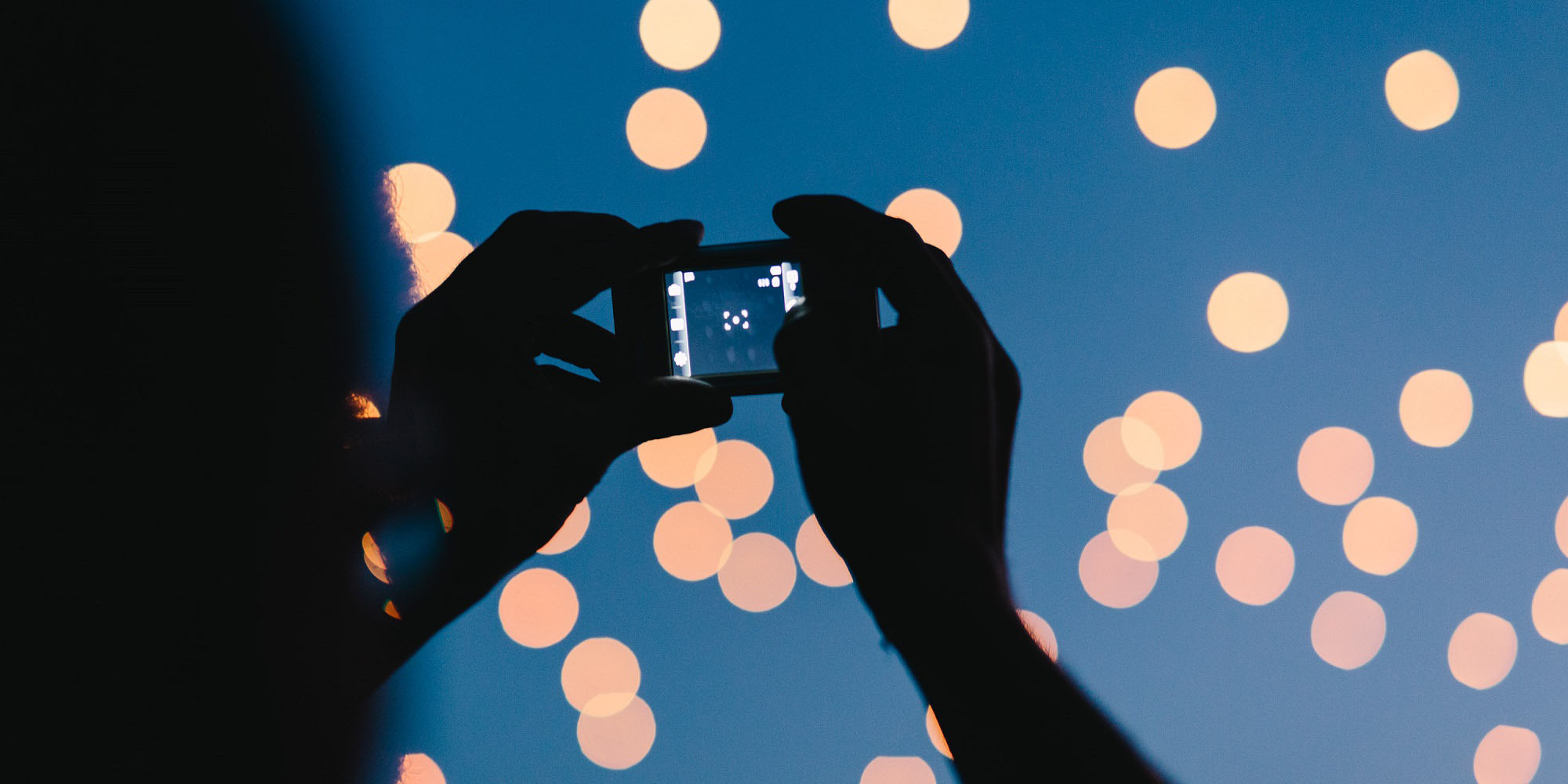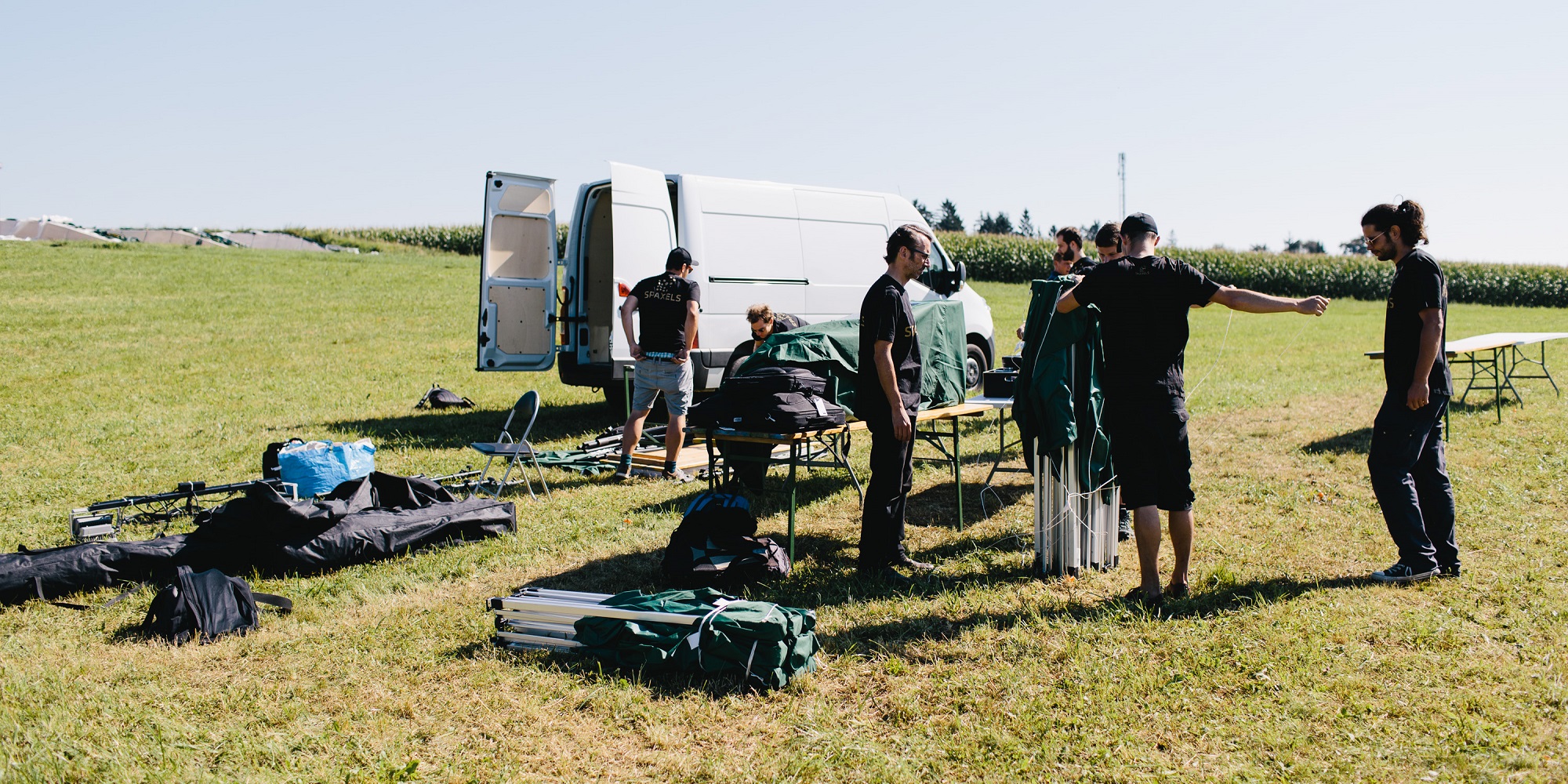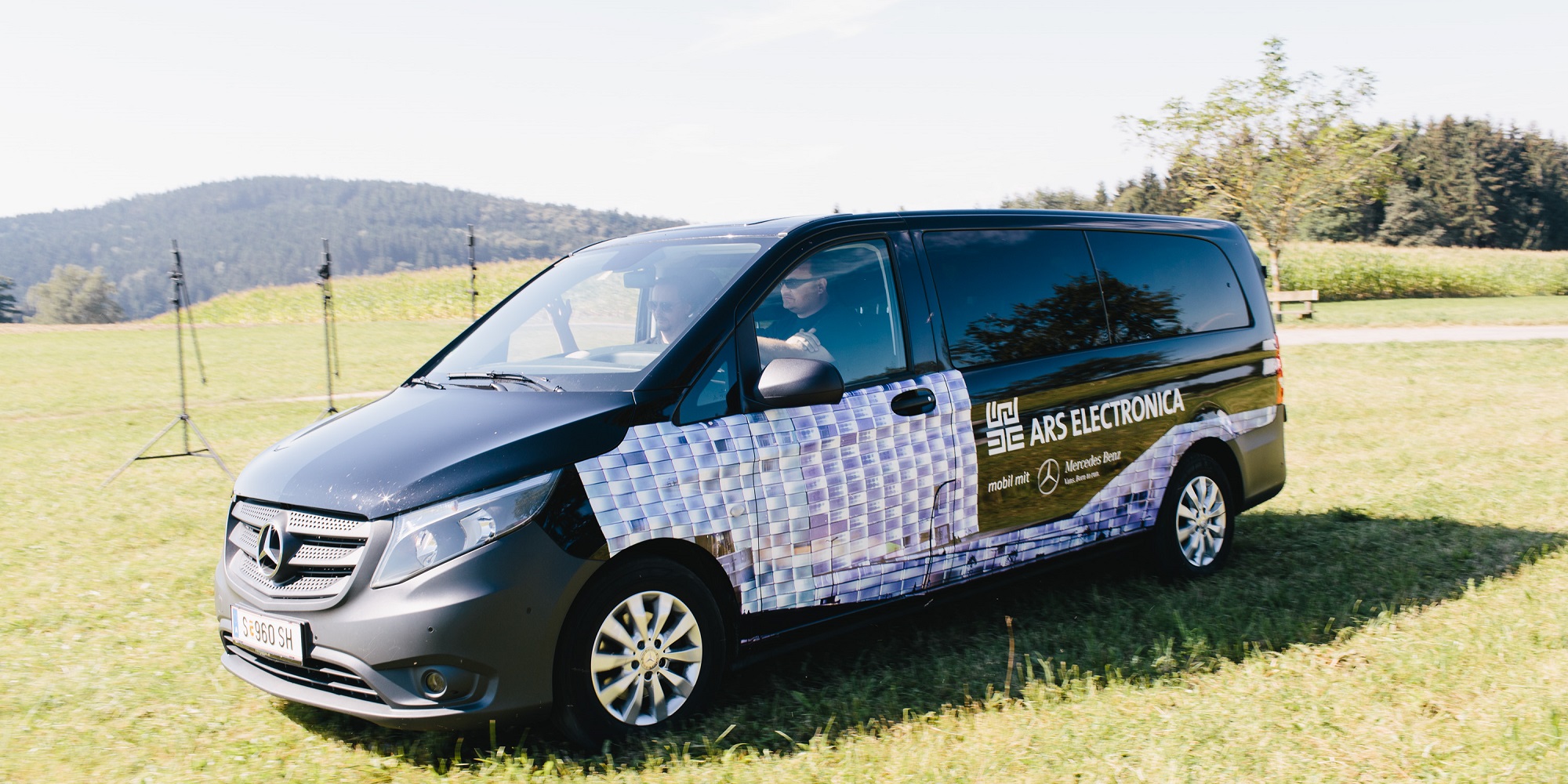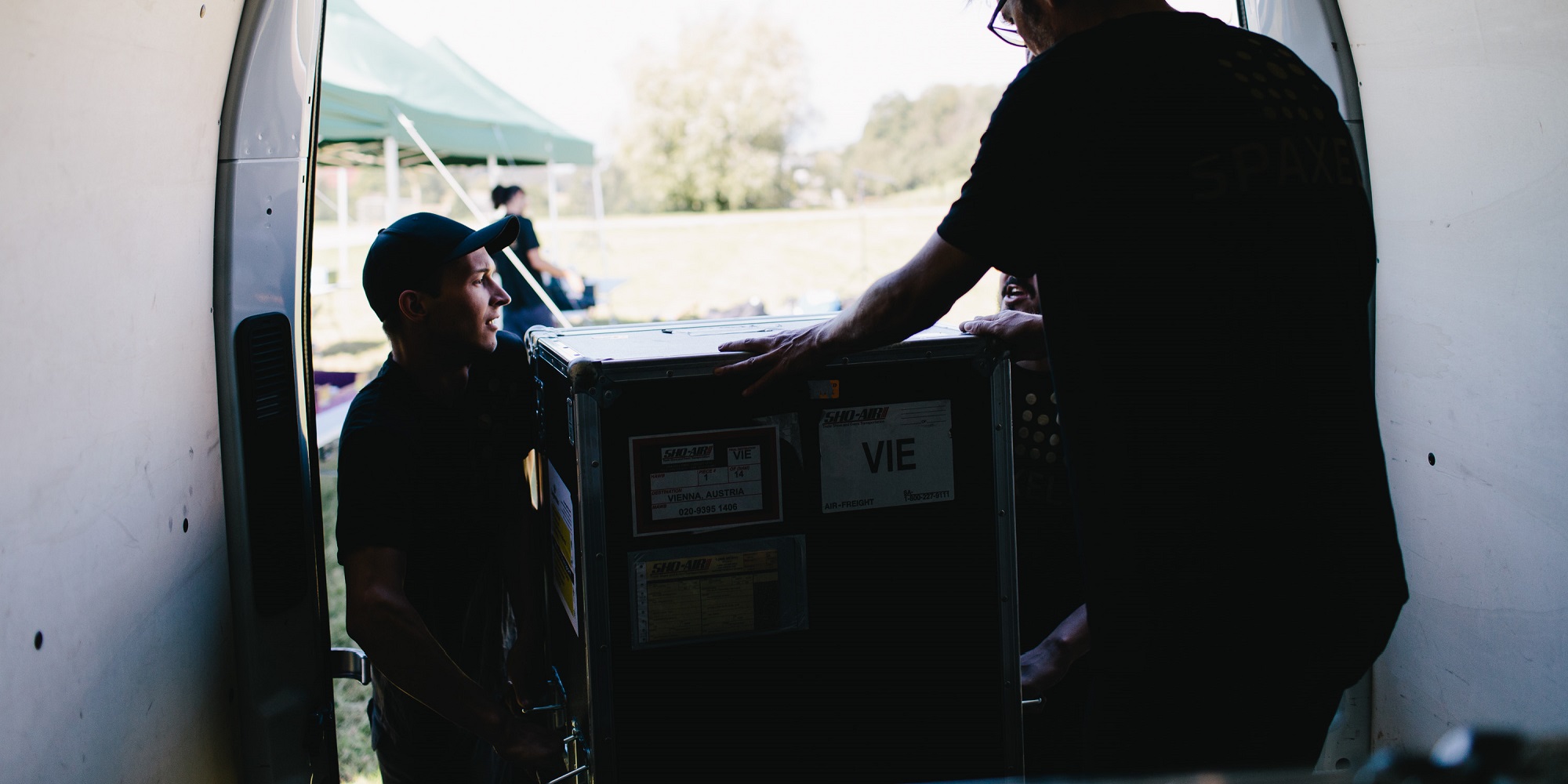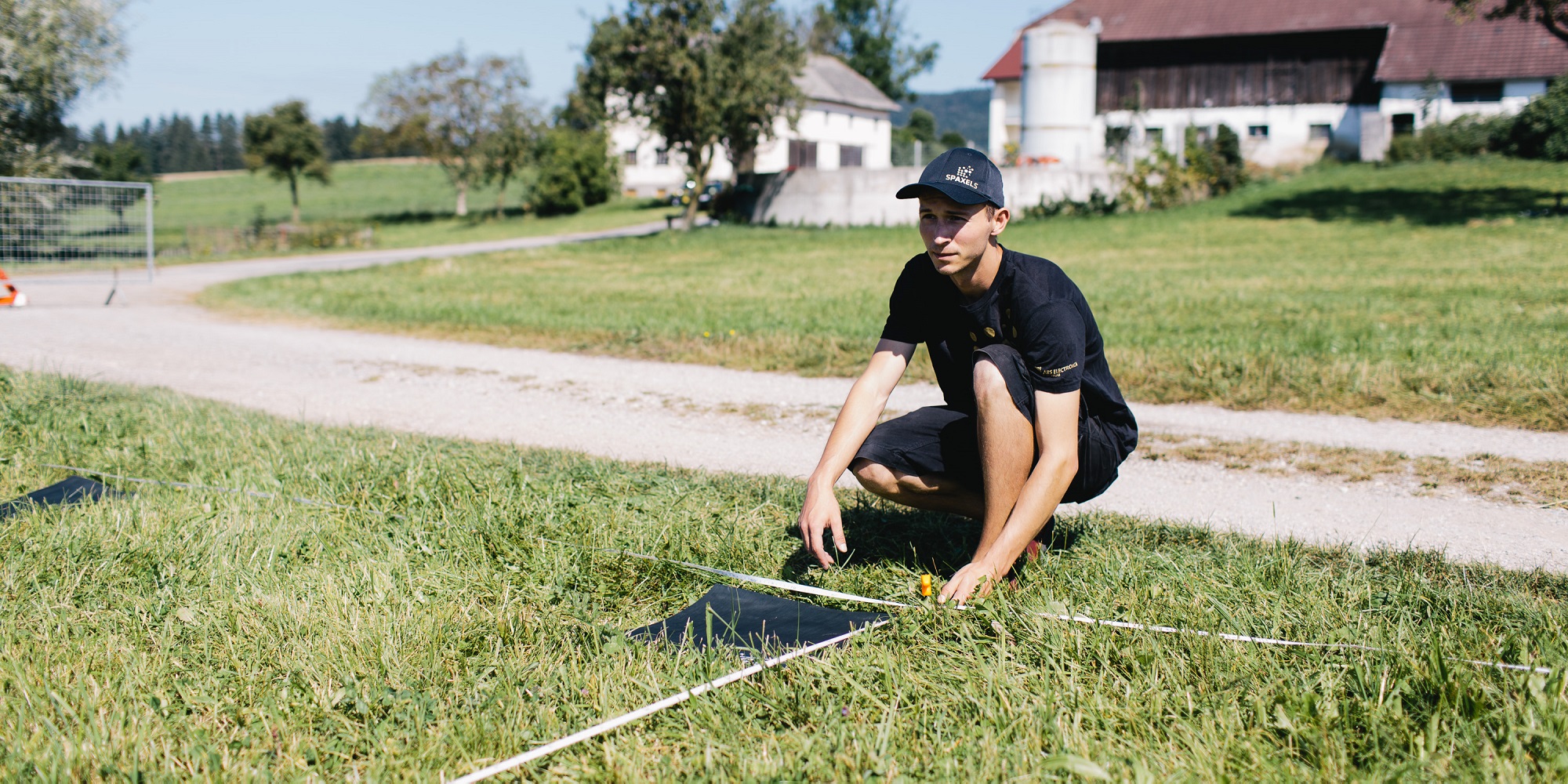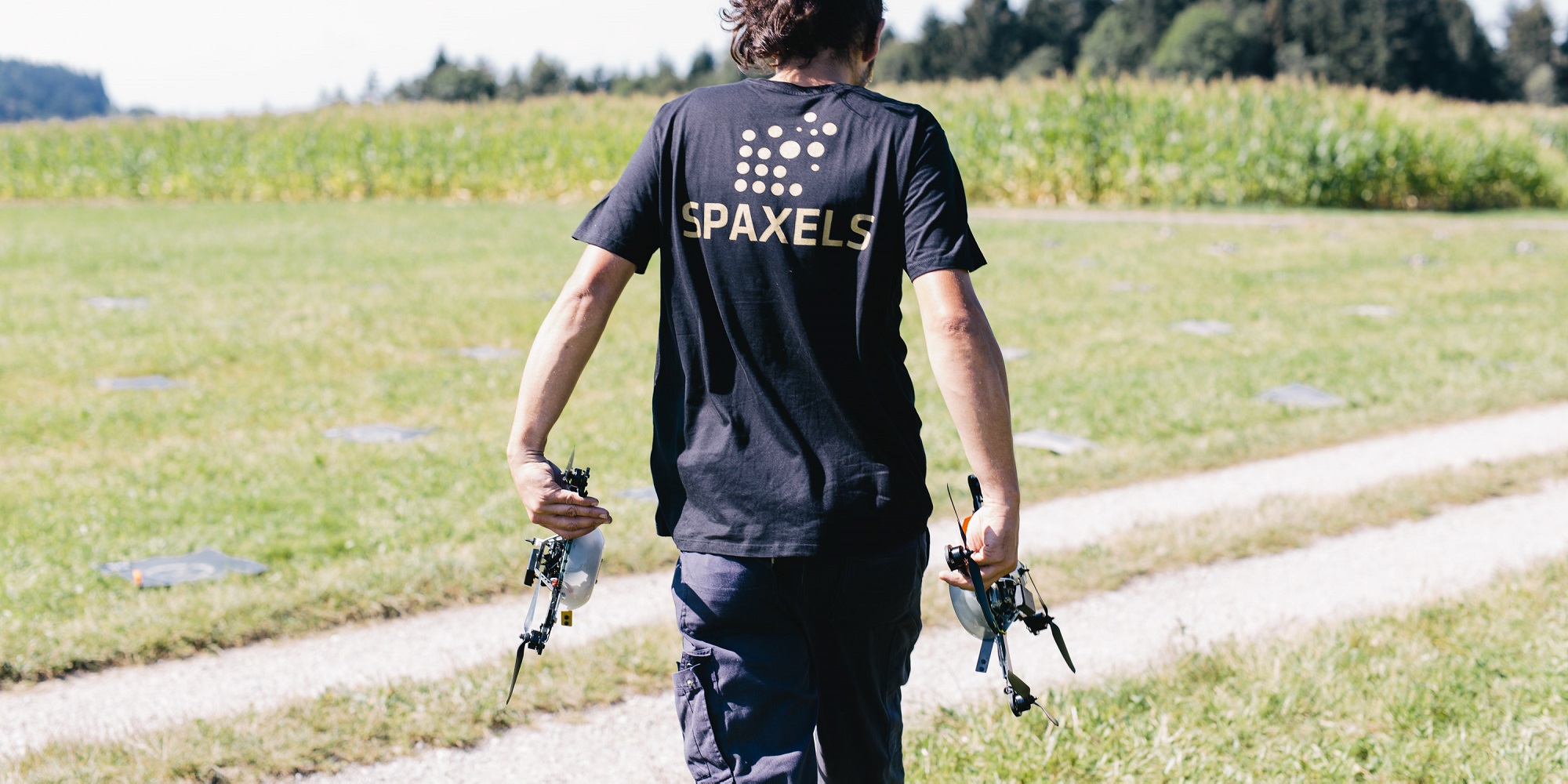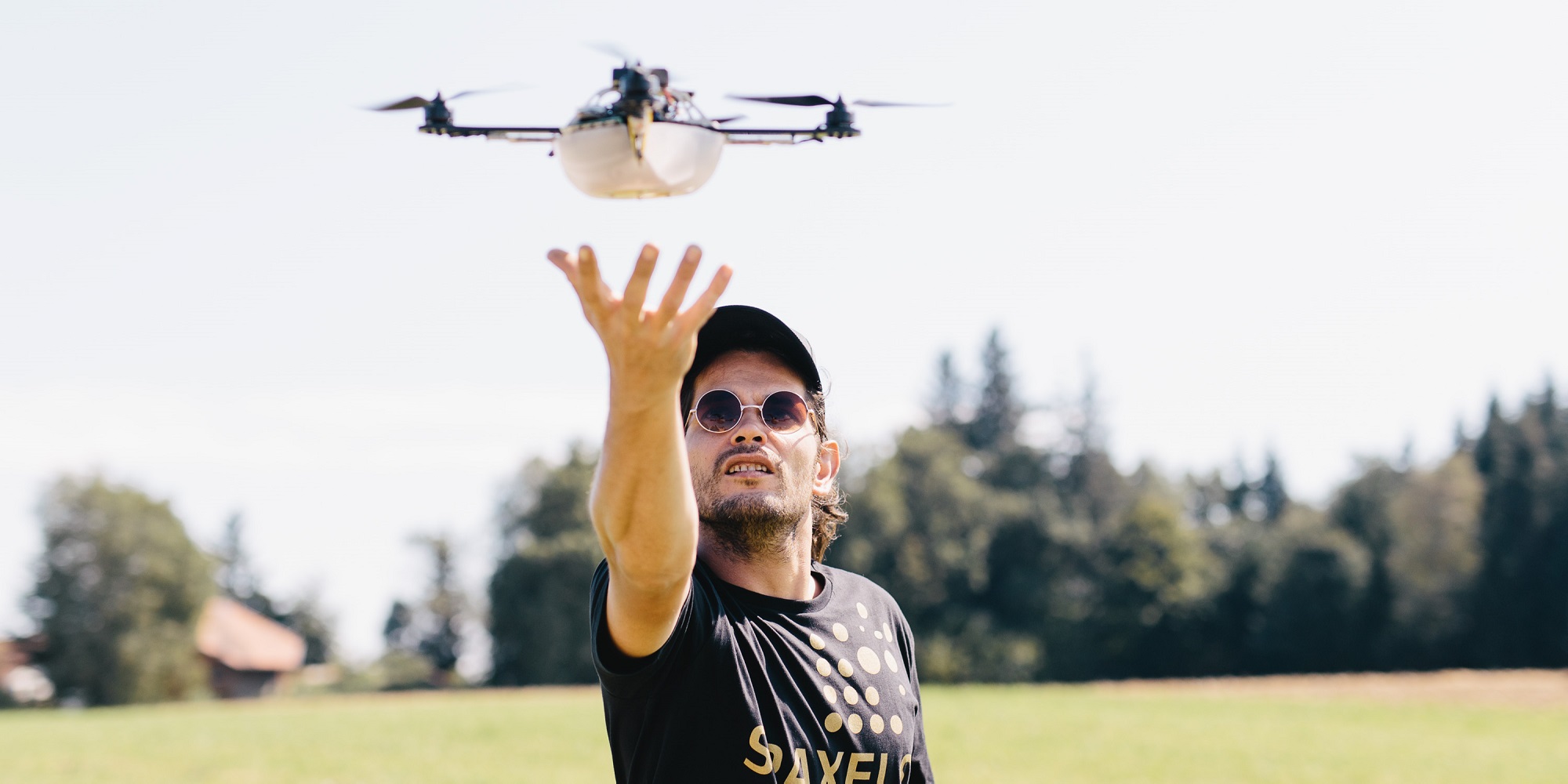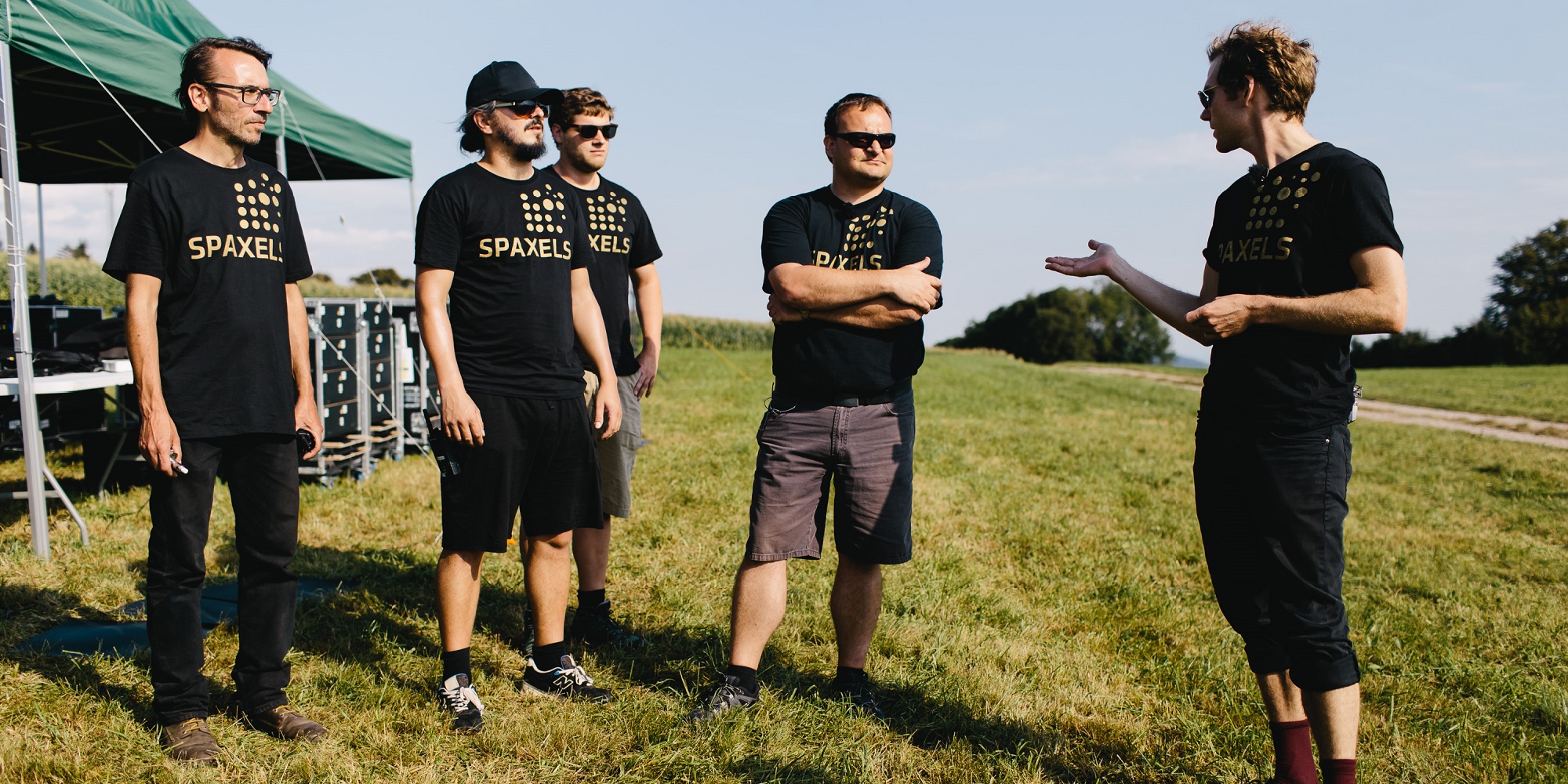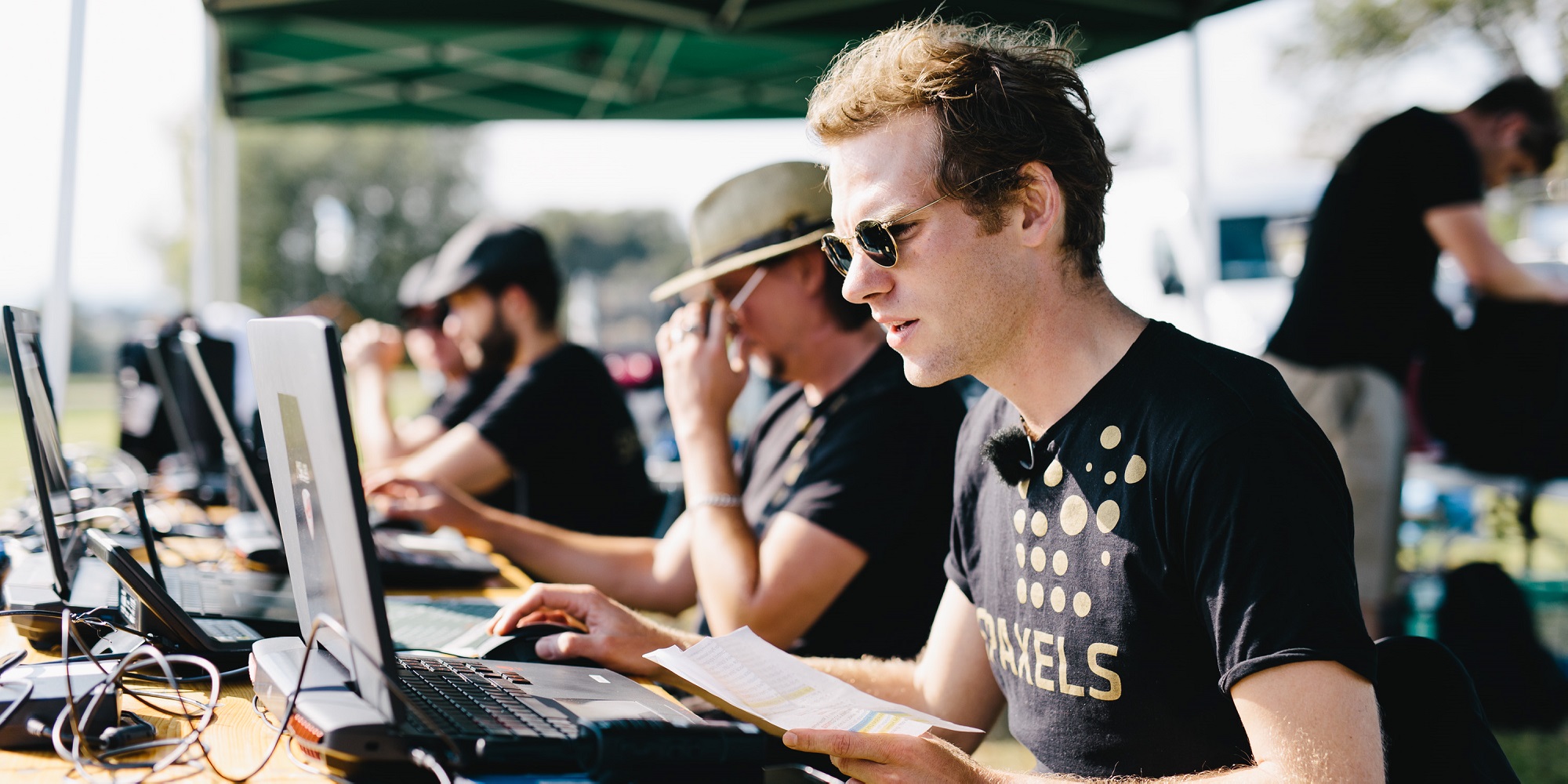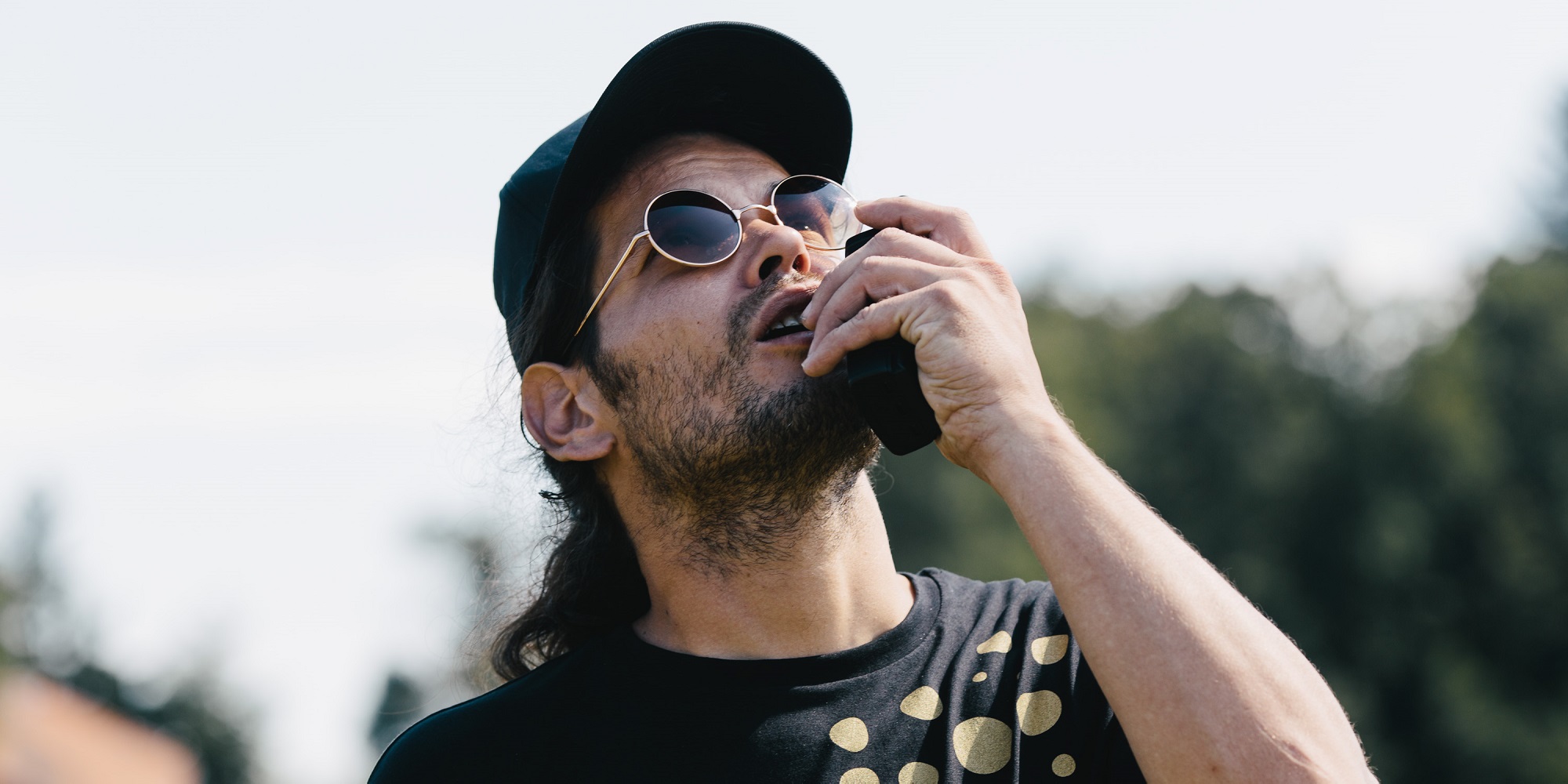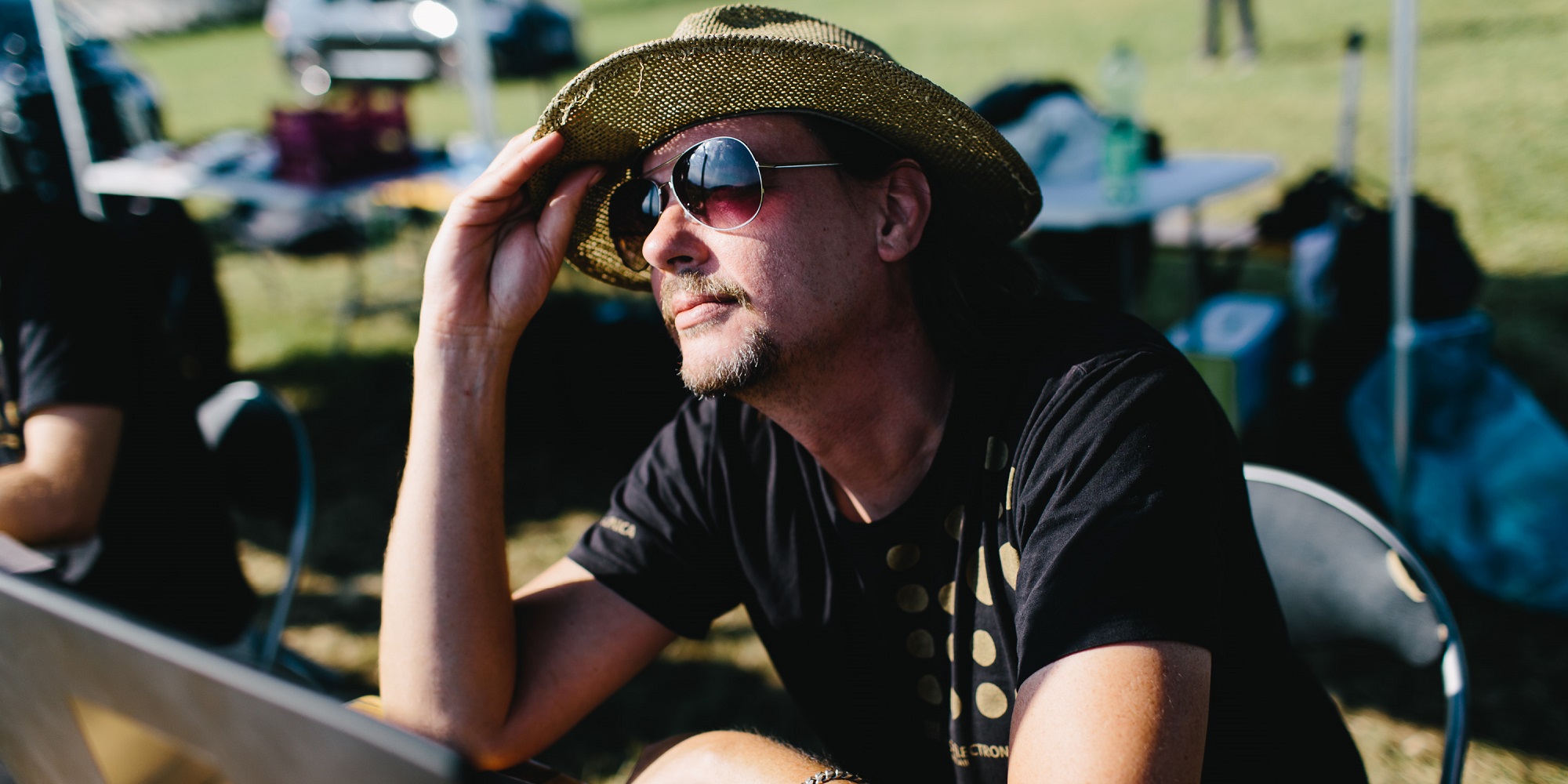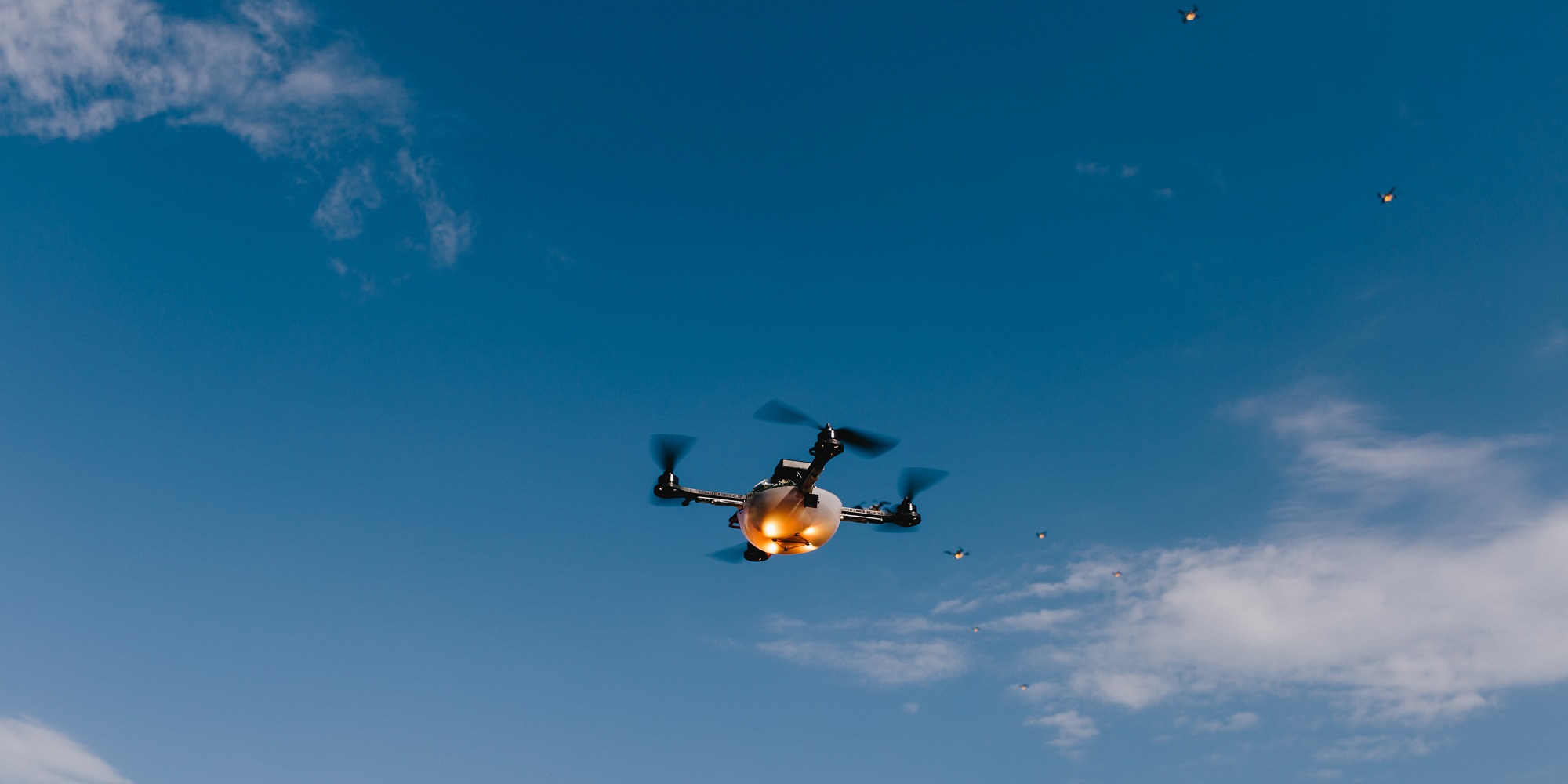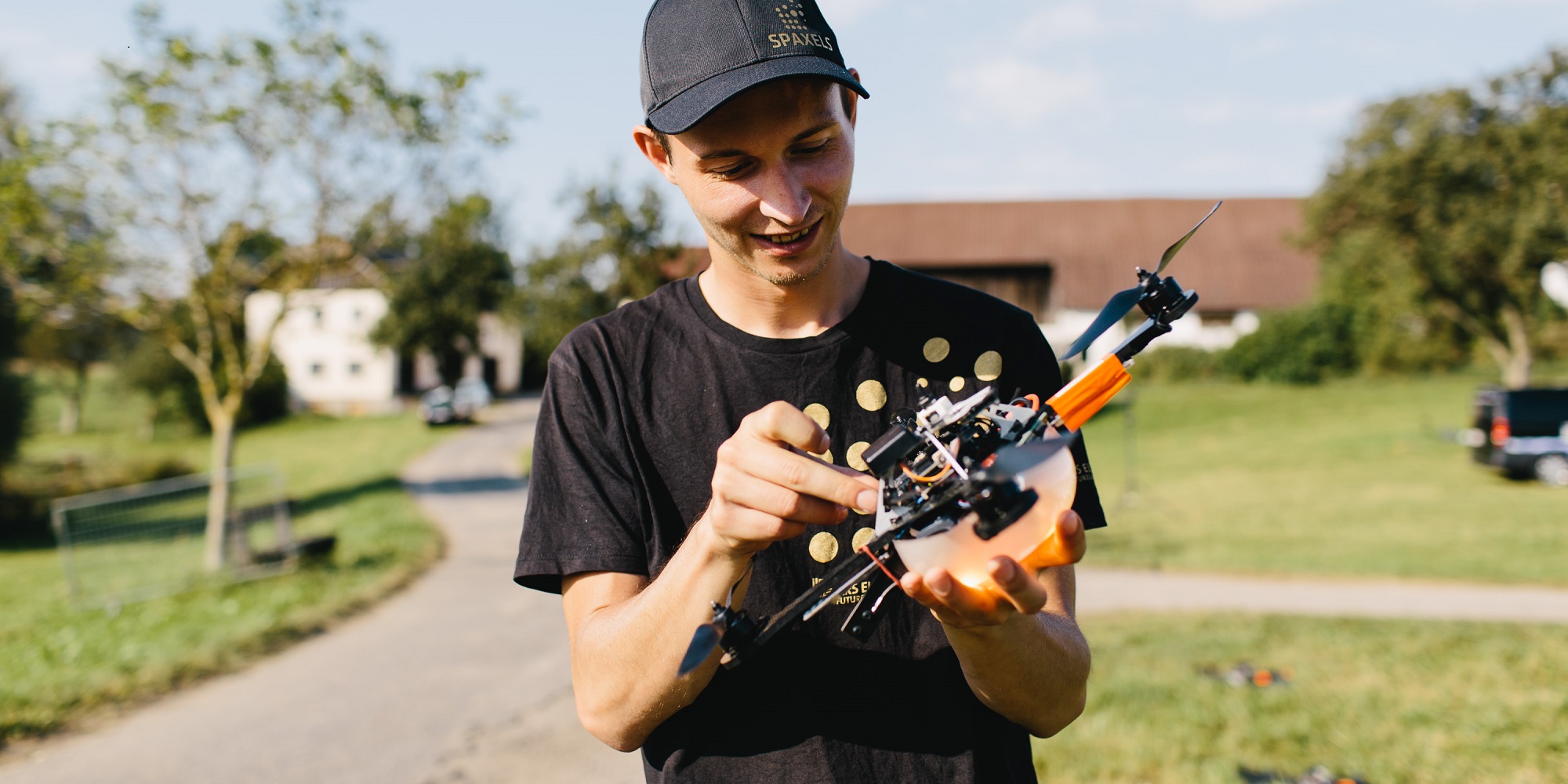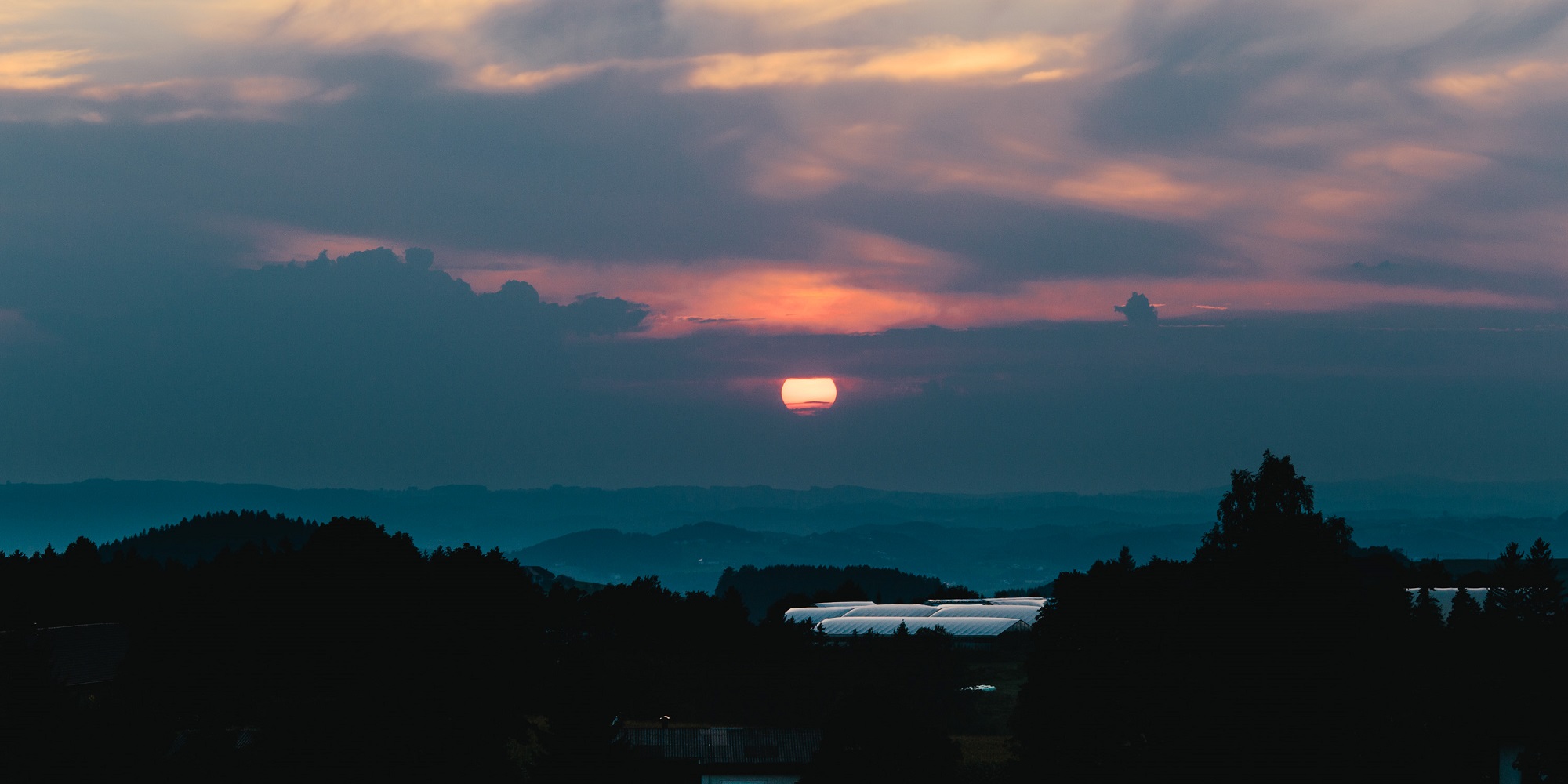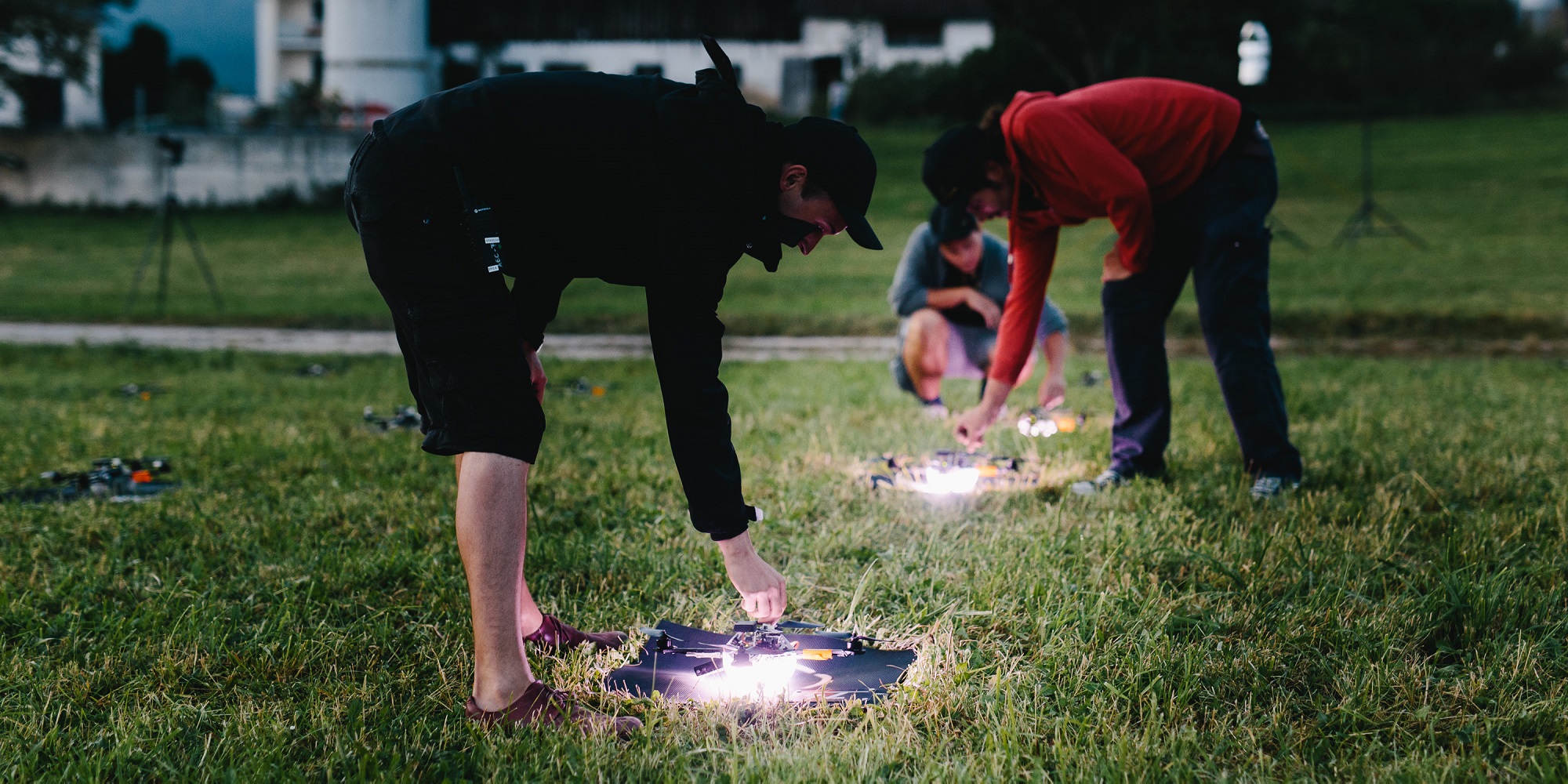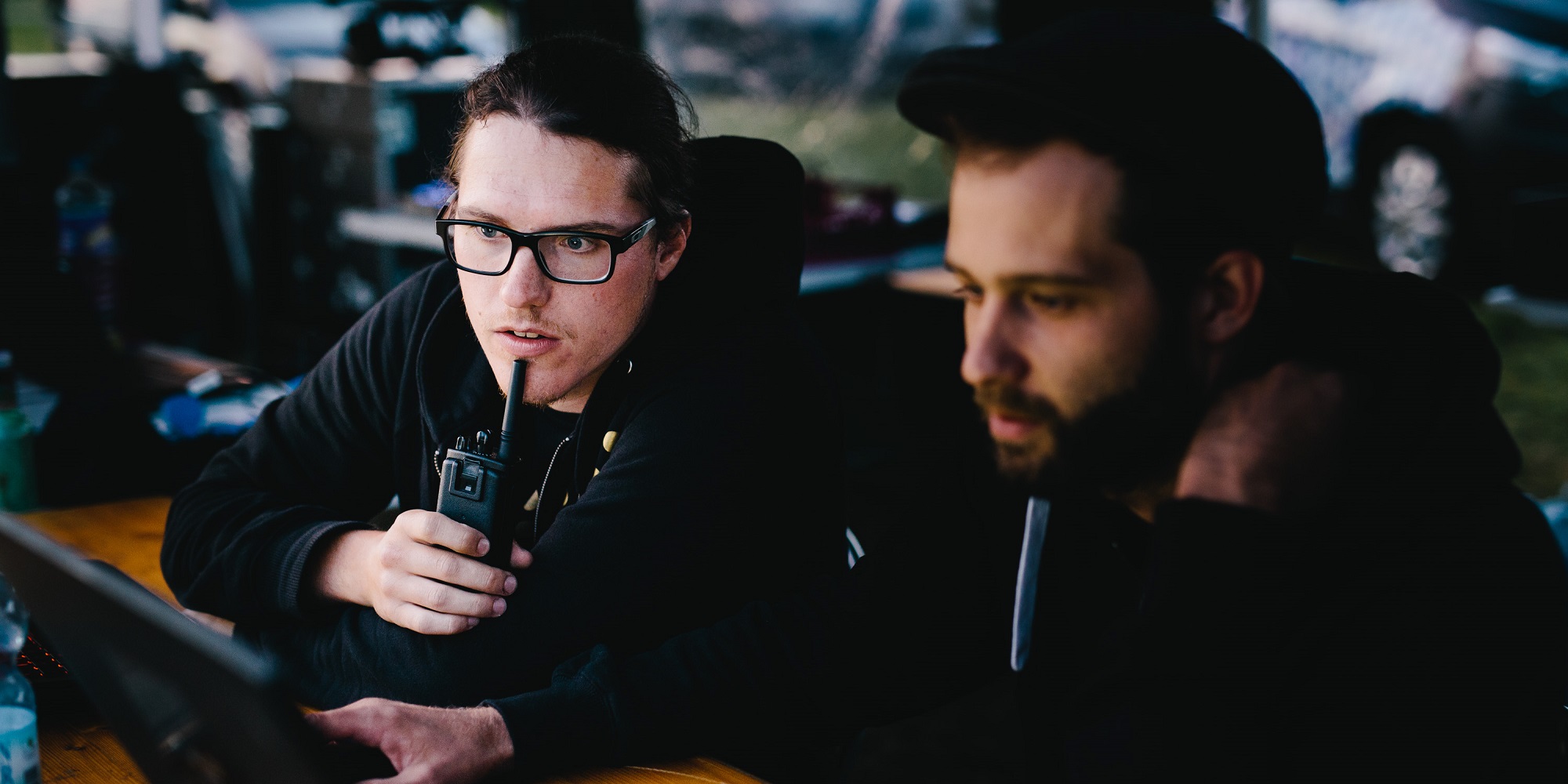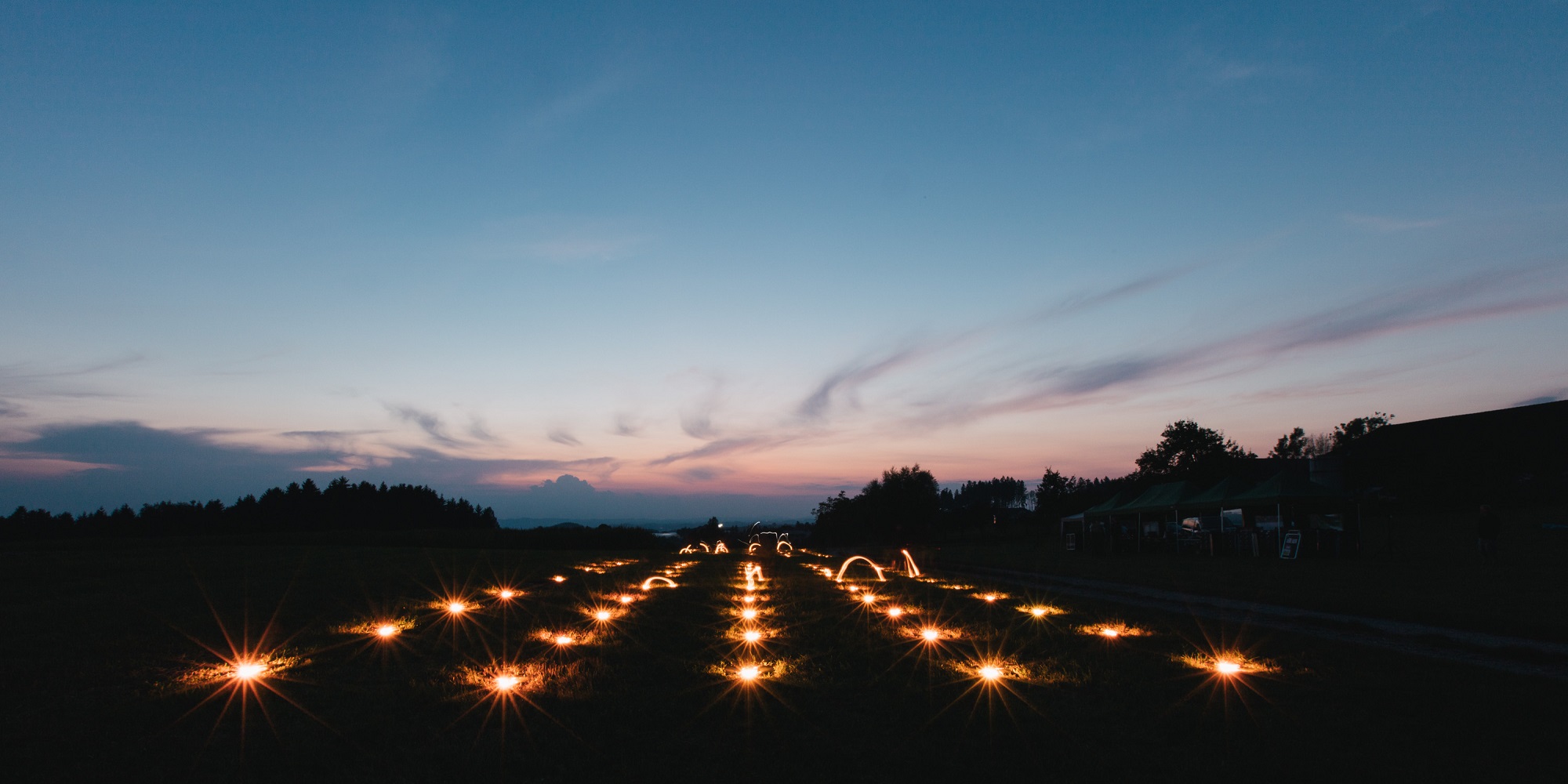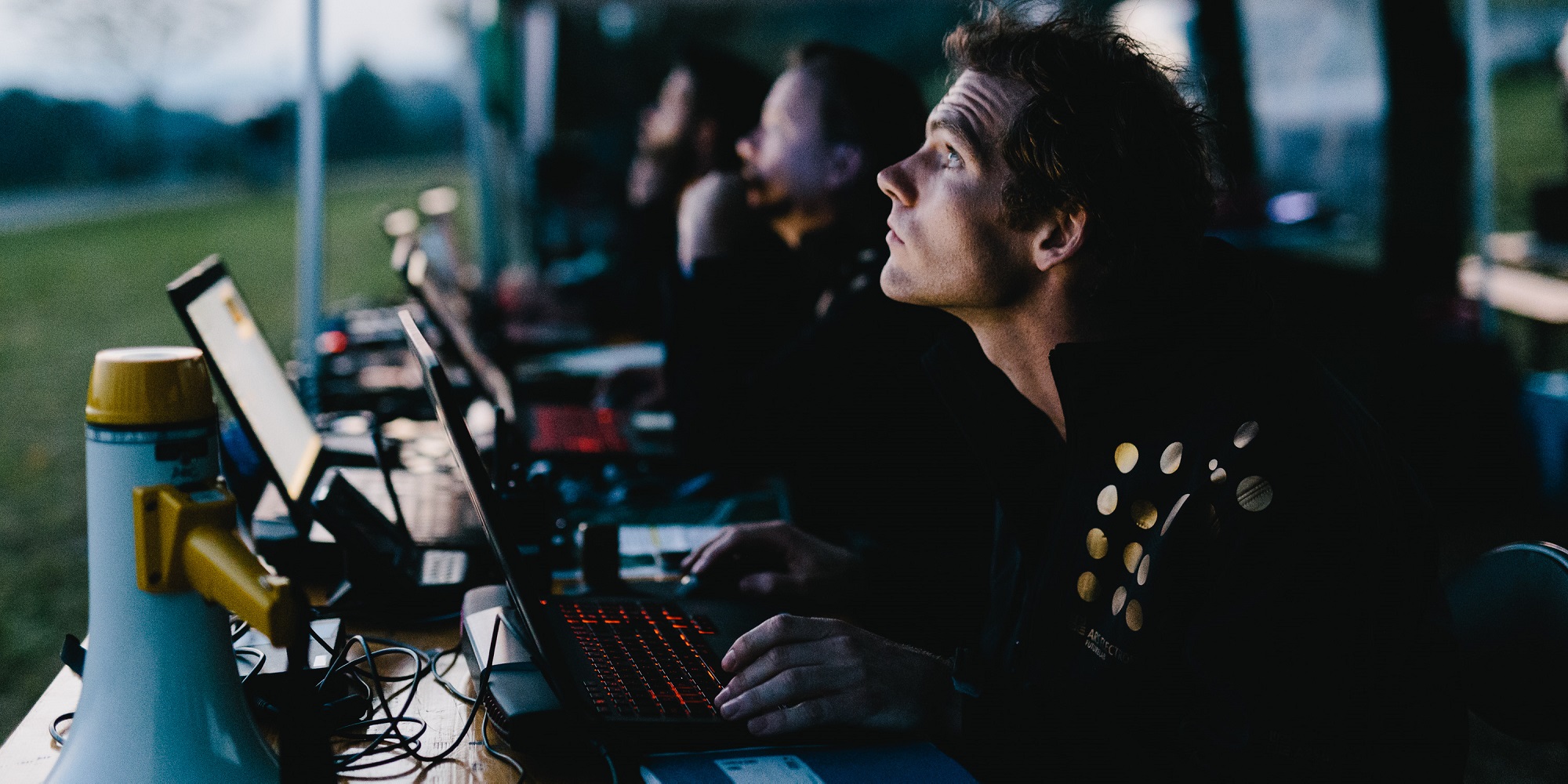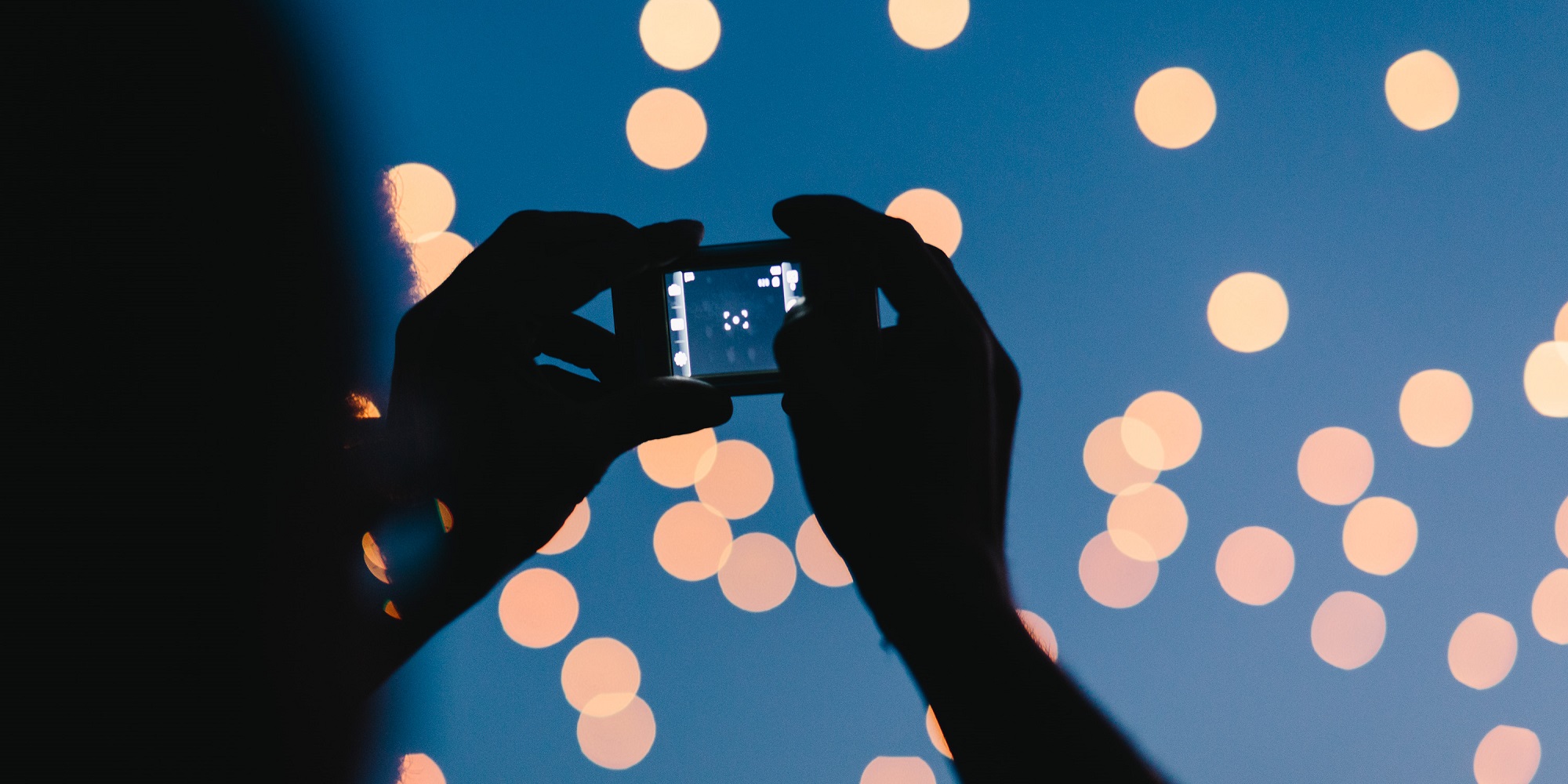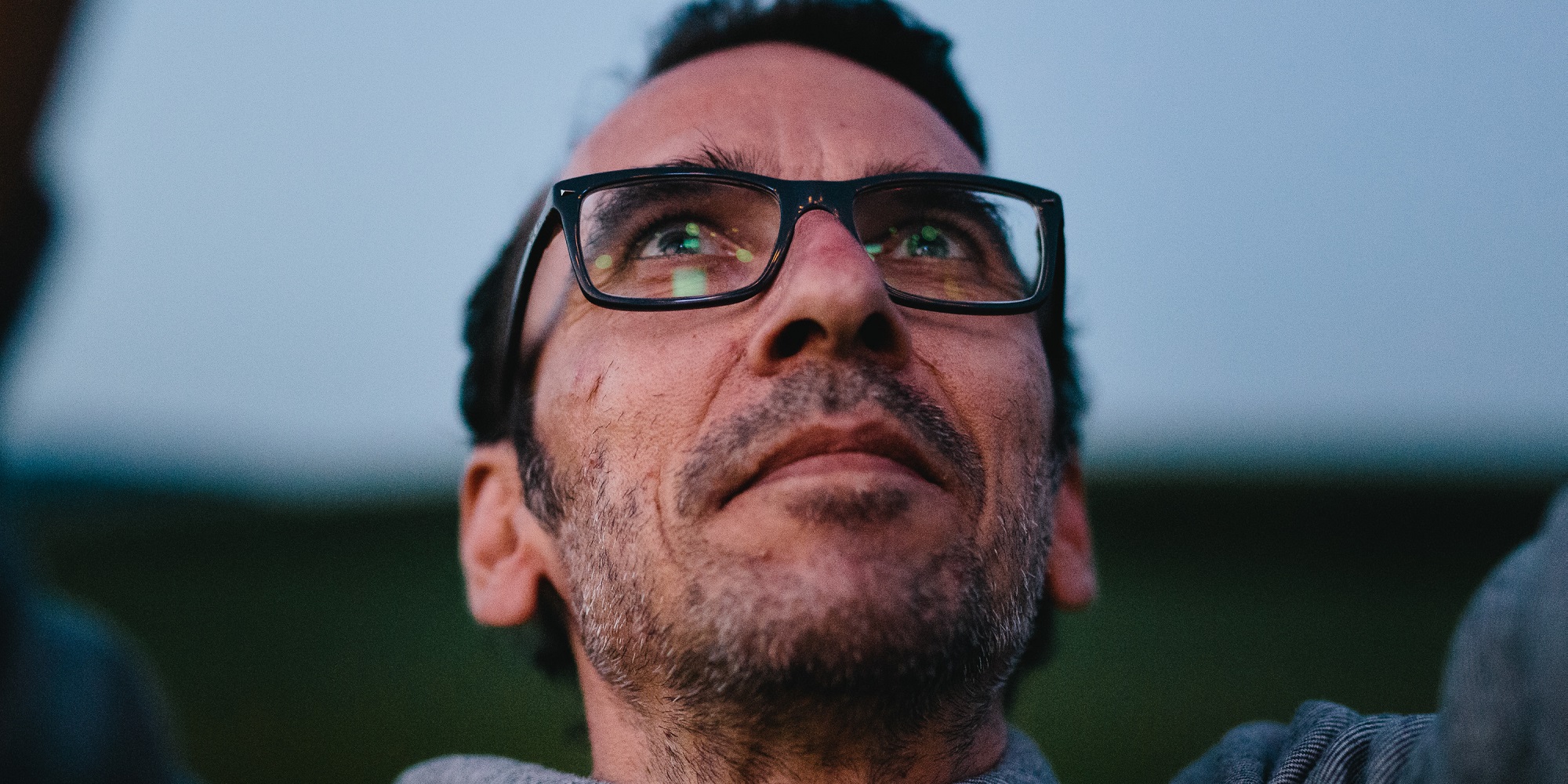Credit: Florian Voggeneder
The crew got busy bright and early, setting up the tents, computers and battery charging stations. They’ve got this totally down pat. After all, these Spaxels—a portmanteau word distilled from space pixels—and their handlers have been around! Following the world-record-setting flight by Intel™ and the Ars Electronica Futurelab in Tornesch on the outskirts of Hamburg, they travelled down under for a repeat performance in Sydney.
Credit: Florian Voggeneder
This time, the Spaxels crew took the full contingent of drones on an outing into rural Upper Austria for their practice run.
Credit: Florian Voggeneder
The first order of business is to unpack the Spaxels, which had just arrived from abroad. That explains the packaging—the black boxes are ideal for international air transport.
Credit: Florian Voggeneder
The crew demarcates the airfield and lays out the drones’ takeoff & landing mats.
Credit: Florian Voggeneder
Then it’s time for the Spaxels to take the field.
Credit: Florian Voggeneder
Drone by drone, each and every one of the 100 Spaxels performs a solo flight. At this stage, any malfunctions can be rectified, which assures that everything proceeds smoothly when they go up as a group.


Credit: Florian Voggeneder
While the individual testing of the drones is in progress aloft, the radio antennas are being adjusted on the ground.
Credit: Florian Voggeneder
Then, everything’s in place for a 100-drone test flight. The crew gathers for a pre-flight briefing…
Credit: Florian Voggeneder
…the pilots man their computers…
Credit: Florian Voggeneder
…and await the signal to GO. 3, 2, 1, lift off!
Credit: Florian Voggeneder
During a performance, the pilots repeatedly check the Spaxels’ flight paths, both on the computer and by actually observing the unmanned aerial vehicles aloft.
Credit: Florian Voggeneder
Each drone is equipped with a high-output LED module that’s clearly visible from far away. As soon as darkness falls, they can fill the sky with a spectacular display of illuminated airborne artistry.
Credit: Florian Voggeneder
After the first test fight, the drones are shut down. At dusk, they’ll be put back into action.


Credit: Florian Voggeneder
The drones’ batteries have to be recharged prior to the next flight. While that’s in progress, the crew checks the housing of each unit’s LED module. Maintenance is performed on some; others are replaced.
Credit: Florian Voggeneder
As sunset nears, the fully loaded batteries are installed in the drones. Now, they’re ready for the second test flight, this time at dusk when the light effects really make a powerful visual impact.
Credit: Florian Voggeneder
The sun goes down. The glowing red ball sends its last few rays over Mühlviertel. It’s getting dark. And that means: It’s showtime!
Credit: Florian Voggeneder
The Spaxels are switched on individually.
Credit: Florian Voggeneder
Before takeoff, concentration is called for.
Credit: Florian Voggeneder
The Spaxels are ready; the purring of the motors gets louder. Then they lift off into the darkness.
Credit: Florian Voggeneder
Once again, the pilots attentively follow what’s transpiring aloft. Is every drone on its correct flight path? Are the light effects fubctioning properly?
Credit: Florian Voggeneder
The heavens are transformed into a sea of lights. The mood is magical.
Credit: Florian Voggeneder
Relief, joy and a modicum of pride—the initial testing prior to the Linz Show is a success.
It won’t be long until the next flight. On September 8-9, 2016 the airstrip will be set up on Linz’s Urfahraner Markt, where visitors will be able to get a close-up look at the drones and learn all about the Spaxels. The big show is set for Saturday, September 10, 2016 at 7:45 PM, when the 100 Spaxels will demonstrate their impressive aerial skills above the Danube just before the Klangwolke.
Merken
Merken
